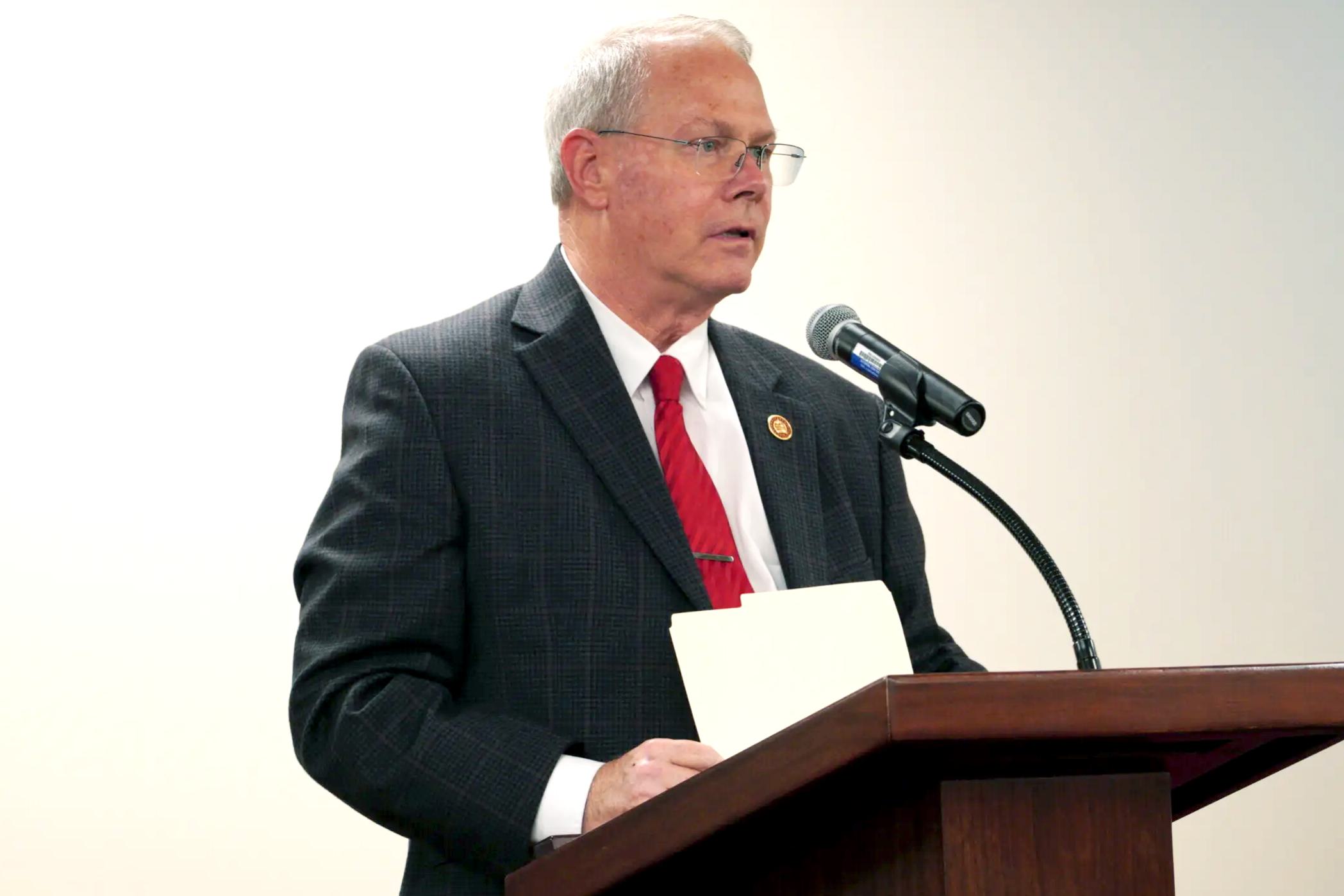MONTGOMERY — The bill by State Rep. Ed Oliver (R-Dadeville) banning the teaching of "divisive concepts" in Alabama schools and universities has passed committee and will soon go to the floor for a vote.
On Wednesday, the House State Government Committee held a public hearing to discuss the bill.
After lengthy public comment, the bill passed the committee with a vote of 9-3.
According to the legislation, the bill would prohibit certain public entities, including state agencies, local boards of education, and public institutions of higher education, from promoting or endorsing, or requiring affirmation of, certain divisive concepts relating to race, sex, or religion.
The bill would prohibit certain public entities from conditioning enrollment or attendance in certain classes or training based on race or color. It would also authorize certain public entities to discipline or terminate employees or contractors who violate the bill's provisions.
A similar bill passed House last year but stalled in Senate deliberation.
The bill has been called a CRT (Critical Race Theory) bill since the legislation defines "divisive concepts" in ways broadly found in works on CRT.
While CRT is an academic legal theory that offers a particular perspective on marginalized or oppressed groups, it has become a common term applied to most teaching on gender, oppression and racism in legal, cultural, or educational settings.
Opponents of the bill at Wednesday's meeting generally painted the legislation as an effort to prevent history from being taught, while supporters of the bill fought against aspects of CRT present in Alabama schools.
John Eidsmoe, chief counsel for the Foundation for Moral Law, spoke in favor of the bill, claiming it was "well within the parameters of the Alabama Constitution."
"This dealing with racially and other forms of divisive concepts being taught, many times referring to what is called 'wokeism' or [CRT]," Eidsmoe said. "It's certainly not limited to that. It could be many divisive ideologies on many sides. But I've studied CRT at great length. I am convinced that it is dangerous, divisive and false, that it's contrary to the beliefs and values that most Alabamians, and our schools and our agencies should not promote an ideology that teaches children and others to hate their ancestors, to be ashamed of their country, that divides parents and children from each other, that divides children from each other, and that indoctrinates people to define themselves by identity groups instead of as free and equal individuals made in the image of God."
Becky Gerritson, executive director for Eagle Forum of Alabama, lent support for the bill, claiming some students in Alabama schools have been asked to engage in "privilege walks" or a "privilege circle." According to Gerritson, these events caused children to be singled out by their race and economic status, and white children were asked to apologize for their skin color.
Some opponents took issue with the bill applying in a university setting, which they believe would stifle free speech on college campuses. Others criticized the legislation for its "vague" language.
"I understand, yes, we do have to shield and protect K-12, But to equate the reasoning and rationality of a third-grader with that of a college student, assuming that a college student is no better equipped to defend against erroneous theories than a third-grader is absurd," said Alabama State University Professor Robert White. "College students and third graders shouldn't be lumped together, nor should we not talk about something purely because it upsets some people. I'm a preacher; I upset people all the time. I'm a college professor; students walk out mad all the time. But I tell them to defend themselves. If I'm wrong, show me."
Bobby Mays, president of the Elmore County NAACP, said the legislation would prevent educators from teaching "true history."
"In the early years of this country, who were the slave owners?" Mays asked. "Who were the elected officials? Who were the governors? Who were the chiefs of police? I'll tell you who those folks were. Those folks, from a historical standpoint, they were mostly white. They were mostly white men. And now, you want to pass legislation that criminalizes teachers for teaching that history."
The bill drew lengthy condemnation from Democratic State Reps. Barbara Boyd (D-Anniston) and Prince Chestnut (D-Selma).
The bill defines "divisive concepts" as the following:
That any race, color, religion, sex, ethnicity, or national origin is inherently superior or inferior.
That individuals should be discriminated against or adversely treated solely because of their race, color, religion, sex, ethnicity, or national origin.
That the individual moral character of an individual is solely determined by his or her race, color, religion, sex, ethnicity, or national origin.
That solely by virtue of an individual's race, color, religion, sex, ethnicity, or national origin, the individual is inherently racist, sexist, or oppressive, whether consciously or subconsciously.
That individuals, by virtue of race, color, religion, sex, ethnicity, or national origin, are inherently responsible for actions committed in the past by other members of the same race, color, religion, sex, ethnicity, or national origin.
That fault, blame, or bias should be assigned to a race, color, religion, sex, ethnicity, or national origin, or to members of a race, color, religion, sex, ethnicity, or national origin, solely on the basis of race, color, religion, sex, ethnicity, or national origin.
That any individual should be asked to accept, acknowledge, affirm, or assent to a sense of guilt, complicity, or a need to apologize solely on the basis of his or her race, color, religion, sex, ethnicity, or national origin.
While other states have enacted similar laws to HB7, Florida is the only one to apply it to higher education. Florida is currently fighting an injunction against the law in federal court.
To connect with the author of this story or to comment, email craig.monger@1819news.com.
Don't miss out! Subscribe to our newsletter and get our top stories every weekday morning.










